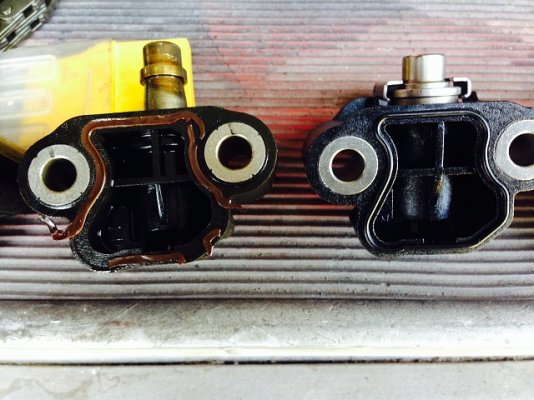From just the posts on "longevity" on this forum over the past few days tell us that if we are lucky....5 or 6 out of 100 Expys will even make it to 200,000 and Expys are one of the longest!
Your results will vary.....
I agree with Train and the OP that finding these predictors would be invaluable to us as owners and more so for Ford.
My own experience is that once the traces of a failure are in the oil, the damage is done. You can see the evidence but there's no period of time between the appearance of evidence and the actual failure.
jeff
Git 'er dun!!!!
There's a thread, somewhere on the interwebs, (can't remember where, Google is ur friend) mentioning the degradation/deterioration of the Puralator version of the Motorcraft FL500?oil filter (The effin same motorcraft filter that is recommended in 3.5 Ecoboost 2nd gen- possibly 1st gen too, but I don't care to verify) as a known problem with a certain "lot."
Puralator is the same company that produces the rebranded "Motorcraft" oil filter.
AFAIK there are zero published reports of ANY motorcraft branded oil filters for the same use - 3.5 Ecoboost. It strikes me a little more than weird, that essentially the exact same filter with possibly different paint and insignia, NEVER had ONE failure?????
Particulate matter being sent through the galley's and other passages within the engine, could easily lead to a FALSE reading with the "advanced" 2nd generation variable oil pump on Gen II's and cause almost instantaneous irreversible engine damage as a result.
There in lies my situation, for better or worse, no oil analysis could foretell of impending doom, unless the filter was immediately changed AND entire engine meticulously cleaned, (not likely).
I submit this, NOT as a bearer of doom and gloom, but simply as information. I do not believe if this problem (IF EVER confirmed by FORD) is ever brought to light, is widespread. I do believe it is a very real possibility based on information gleaned from professionals who most certainly will NOT, go public and support the assertions I've submitted here, simply because you don't bite the hand that feeds you.
Sure there will still be the TROLL(s) who don't comprehend that this is at all possible, and assert taking a vehicle to TEST AND TUNE session(s) at a closed course, as "Racing and Abuse", but as the saying goes...agree to ****** disagree!!!!
EDIT....Just realised this thread did not originally coincide with the 4th generation Expedition, as such, my comments should be taken, with even LESS than the proverbial grain of salt.


